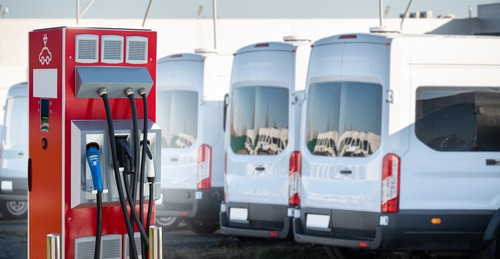
Electric freight trucks and buses will be less expensive to purchase and operate than their combustion engine counterparts by 2027, according to a Roush Industries for Environmental Defense Fund study.
Researchers evaluated the upfront and ongoing costs of electrifying several types of medium and heavy-duty vehicles commonly used in urban areas. This included delivery trucks, garbage trucks, school buses, shuttle buses, and transit buses.
When comparing upfront purchase prices alone, electric freight trucks and buses will be less expensive in all categories except shuttle buses. In that case, the vehicles will be close to price parity.
Electric vehicles also will have a less expensive cost of ownership in all categories.
Researchers determined the total cost of ownership for vehicle purchase costs, fuel or energy costs, charging or fueling infrastructure costs, maintenance costs, and vehicle mid-life refresh if applicable. They did not include the health and welfare benefits associated with switching to electric trucks.
Costs will decrease, researchers found, because of falling battery prices and because maintenance and energy costs will be lower.
Less than 10 percent of the vehicles on U.S. roads are freight trucks and buses, yet they are responsible for nearly 25 percent of climate pollution from the transportation sector.